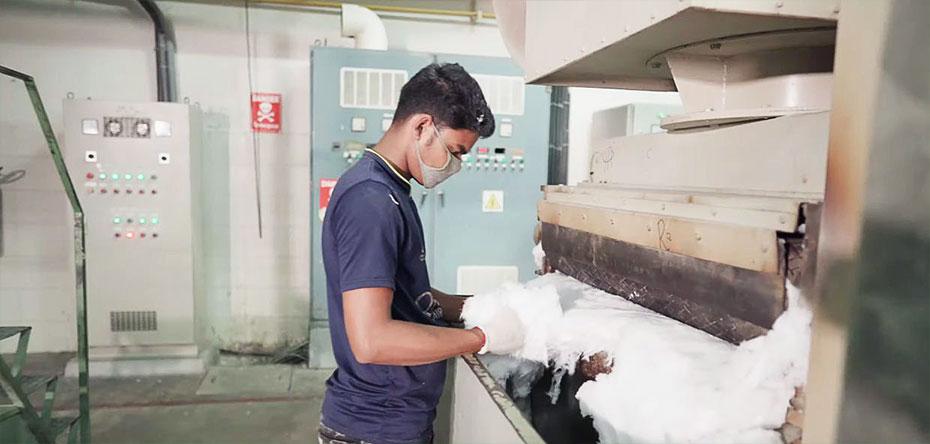For many women working at our suppliers in Bangladesh, the job is a leap towards independence. To support them, H&M Group wants to promote more women supervisors. While being promoted is positive on a personal level, it’s also beneficial for all women workers since workplaces with more female leaders lead to a better work environment for all women.
Empowering women
Report stories
Promoting female leadership in the Bangladesh garment industry
In 2021, the number of women supervisors at our supplier factories in Bangladesh went from 6% to 10%. We see this as a great success, especially in a country where only 36%* of women are in the workforce.
Getting the numbers up
We started by tracking the number of female supervisors in each factory, compared it to the numbers of women working there, and then used those numbers to show how the supplier performed on gender equality developments. Suppliers with a higher rate got better business opportunities, like longer-term planning and more insights into what we need in the future. These incentives, in combination with leadership training, helped us up the number of female supervisors. One insight from this project is how we have seen that female supervisors pave the way for other women by serving as role models.
“These days, no woman is left behind. I took the opportunity to become a supervisor, and I want more women to follow”, says Papia Akter Ferdousi, sewing assistant supervisor at the supplier Fakir Fashion Ltd.
Attracting talent that will stay
In Bangladesh, only around 36% of women are in the workforce. In a country with such a low percentage of women working, the main challenge is attracting female talent, making them stay and enabling them to thrive.
“We believe in women’s empowerment, and we want to ensure an environment for women to accelerate in their careers. H&M Group knows this and nominated us for a program that will help us with a more scientific and elaborative approach. Our on-boarding of female supervisors have inspired others, and today, we have a large number of female supervisors in our garment production”, says Akbor Haider Munna, Vice Chairman, Comfit Composite Knit Ltd.
A lot of our work is centered around creating a better work environment. That includes providing better daycare facilities, supporting the implementation of breastfeeding breaks, establishing anti-harassment complaint committees, and upskilling female workers.
Independence through digital wages
Another critical action has been to digitalise wages. Having a salary put into your bank account means more financial freedom. Today, about 97% of our direct suppliers in Bangladesh pay workers’ wages digitally. Just a few years ago, in 2017, that number was around 40%.
*Source: The World Bank




